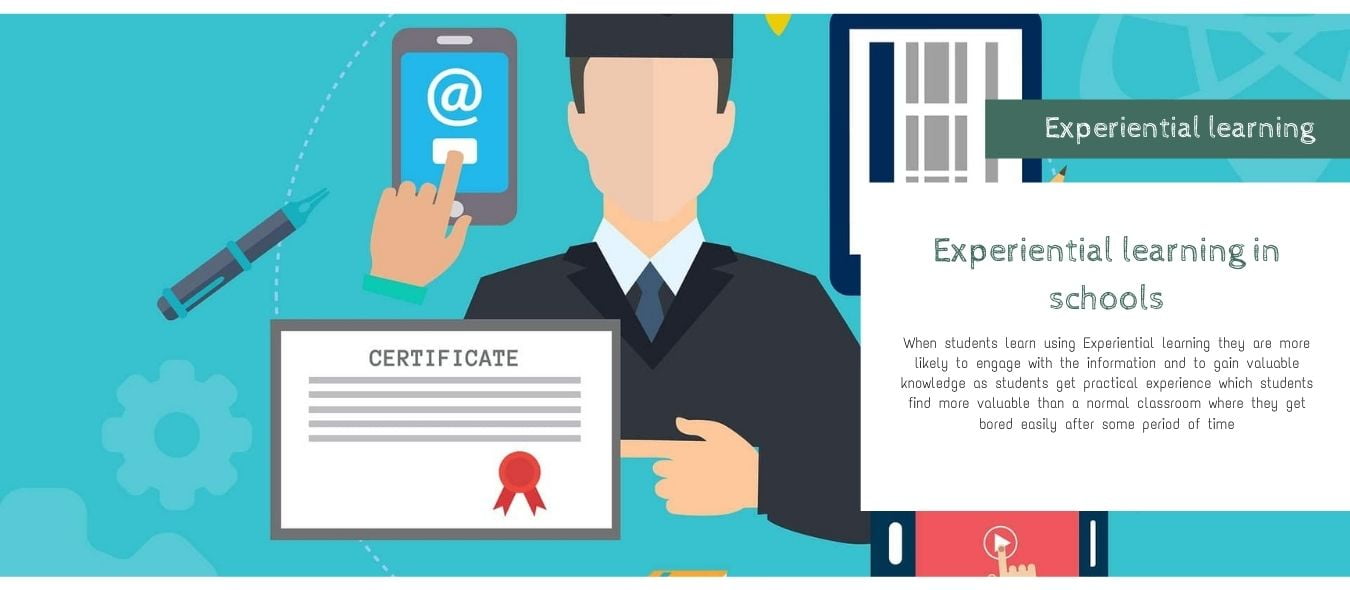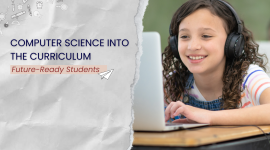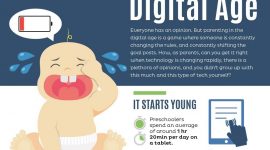School is a place where parents send their children for education and to gain valuable knowledge which will help them become successful in life and earlier parents used to be happy with the progress of their children as classroom-based learning was considered best for education but now things have changed completely as the world has evolved but the school education still stuck to its old method which has become outdated in this modern world due to advancement of technology.
The traditional way of teaching is not helpful for students as teachers are teaching the students in a way that is not at all engaging which result in students not able to connect with the information or understand it. So to solve this problem a new learning technique has been introduced is experiential learning in this technique students are required to use their previous understanding and use that understanding in practical work and by this practical experience they are able to create a new understanding.
Every school from primary to seniors level should use experiential learning and update the way of teaching to make students more engage with the information and develop key skills like critical thinking and problems solving skills which will be required in real-world that’s why more schools like schools in Dehradun is coming forward to use this technique to help students develop key skills in a young age by receiving practical knowledge earlier in life.
Types of Experiential Learning
There are lots of ways a teacher can use experiential learning in the classroom, here are some of them :
- Experiments – In this Teachers can give students a problem and ask them to experiment and find a solution. The teacher creates an atmosphere of no judgement and gives children the freedom to be as creative as they can.
- Internships – In these students instead of going to classes are sent to do an internship for a specific period of time to gain real-world knowledge. This helps students to get exposure to work experience earlier in their life making them more knowledgeable and skilled.
- Group Project – In this Teacher can divide the number of students in a class into small groups and assign them a specific task so students have to work in a team to reach the goals and this will enhance their communication skills, Team working skills, Collaborative skills and Listening skills.
- Research – Teachers can give a topic to students and ask them to research it on their own. Then students will actively research and make a project around it and this will help them build critical analysis, report writing skills.
- Gamification – In this Teacher teaches students but with the help of gamification as there are lots of tools available that make learning fun this type of learning helps students to engage more with the information and able to understand it way better than traditional learning.
Benefits of Experiential Learning
There are enormous benefits of using Experiential Learning which is as follows :
- Increase Engagement – When students learn using Experiential learning they are more likely to engage with the information and to gain valuable knowledge as students get practical experience which students find more valuable than a normal classroom where they get bored easily after some period of time.
- Develop Skills – Experiential Learning help students to develop important skills such as Problem Solving Skills, Critical Thinking, Communication Skills, Team Work, Collaborative Skills, Listening skills, Organising and Planning skills. These are some skills that are required in the real world and with the help of Experiential Learning Students are able to develop these skills at a very young age.
- Students become Creative – when teachers create an atmosphere of no judgment this gives students the freedom to be more creative in the classroom and this helps them to think out of the box However this is not possible in Traditional Learning as students are not even allowed to write the answer in their own world they had to write the exact answer written in books.
- Freedom to make mistakes – Everyone learns from their mistakes and traditional learning doesn’t give freedom to students to make mistakes but in Experiential Learning students are not being judged and they are allowed to make mistakes and learn from them this helps students to share new ideas without worrying about failure.
It’s high time when Schools should definitely consider shifting from Traditional approach to Modern experiential learning this not even helps the students but it will also help schools to provide high-quality education which will be beneficial for the students in future.









